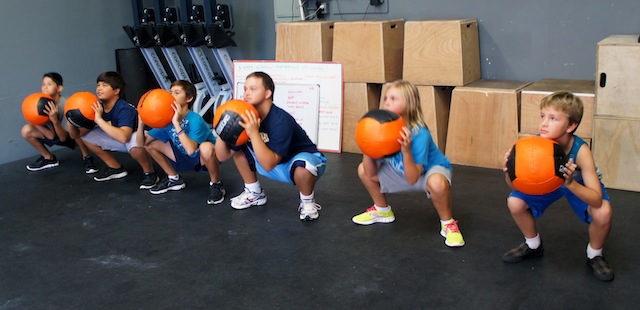
Caring for the elderly is an act of kindness, respect, and responsibility that enriches our society and strengthens familial bonds. As our loved ones age, they may require more attention and assistance to live comfortably and safely. Lifelong wellness for seniors encompasses a holistic approach, focusing not just on physical health, but also on emotional well-being, social interaction, and mental agility.
This guide aims to provide practical tips for compassionate care, ensuring that our seniors not only live but thrive. Through understanding and implementing these suggestions, we can enhance the quality of life for the elderly, showing them the respect and love they deserve in their golden years.
Prioritize Mental Health
Mental health is as crucial as physical health for seniors. Engaging in activities that stimulate the mind, such as puzzles, reading, or learning a new skill, can significantly reduce the risk of cognitive decline. Initiatives that encourage continued education or hobby development support mental agility and foster a sense of purpose and accomplishment.
Creating a safe space for seniors to express their feelings and concerns is vital. Regular conversations about their thoughts and emotions can help identify signs of depression or anxiety early. Providing emotional support through listening, empathy, and if necessary, professional help, reinforces the importance of their mental health.
Provide Access to Quality Healthcare
Access to comprehensive healthcare services is critical for maintaining the health of seniors. This includes regular check-ups, preventive screenings, and medication management. Building a relationship with healthcare providers who understand the unique needs of seniors ensures that all aspects of their health are addressed cohesively. Telehealth has emerged as a valuable tool for providing accessible healthcare to seniors, especially those with mobility challenges or in remote areas.
It offers convenience, reduces the need for transportation, and ensures continuous care, making it a vital component of senior healthcare management. As the folks from Conviva Care Centers note, being aware and prepared against life’s unexpected risks begins with finding the right resources and people. Plus, with all the available options for care and treatment, seniors can get back to their healthy selves under the right supervision.
Encourage Physical Activity
Regular physical activity is paramount for seniors, contributing immensely to their mobility, flexibility, and overall well-being. Activities such as walking, gentle yoga, and swimming are excellent ways for the elderly to stay active without putting too much strain on their bodies. Tailoring the exercise program to each individual’s capabilities and health conditions is crucial to ensure safety and encourage consistency. Additionally, incorporating physical activities into daily routines can significantly improve balance and coordination, which are vital for preventing falls—a common risk for the elderly.
Social engagement through physical activity also plays a critical role in promoting a healthy lifestyle among seniors. Participating in group exercises or community sports offers opportunities for social interaction, which can combat feelings of isolation and loneliness. It’s beneficial to foster an environment where seniors feel motivated and supported to partake in physical activities that not only benefit their physical health but also provide a sense of community and belonging. Encouraging family members to join in these activities can further enhance their physical and emotional well-being, creating cherished moments and lasting memories.
Promote Nutritious Eating
A balanced diet rich in nutrients supports overall health and can prevent or manage chronic illnesses. Crafting meal plans that cater to the dietary needs of seniors, including high-fiber foods, lean proteins, and plenty of fruits and vegetables, contributes to their physical health and vitality. Hydration is equally important; ensuring that seniors consume adequate fluids throughout the day is essential. Meal times should also be an opportunity for social interaction.
Encouraging family meals or communal dining experiences can enhance the emotional and social well-being of seniors. Making mealtime an enjoyable and social event encourages better eating habits and ensures nutritional needs are met. Additionally, involving seniors in meal preparation can give them a sense of purpose and independence while also providing an opportunity for learning and bonding.
Foster Social Connections
Maintaining strong social connections is critical for the emotional and mental health of seniors. Social isolation can lead to feelings of loneliness, depression, and a decline in physical health. Encouraging seniors to engage in community activities, volunteer work, or clubs and hobbies that interest them can foster a sense of belonging and purpose. Facilitating family visits, encouraging friendships with peers, and using technology to connect with loved ones far away are also excellent ways to keep seniors socially active. By ensuring an environment where seniors feel valued and connected, we can significantly improve their quality of life.
Additionally, leveraging modern technology can bridge the gap between generations and help seniors stay in touch with family and the world around them. Offering lessons on using smartphones, social media, and video calling platforms can empower the elderly to communicate independently, learn new skills, and feel a part of the digital age. It’s equally important to create safe online spaces for seniors, educating them about internet safety and privacy. This not only enhances their ability to stay connected but also enriches their lives with access to information, entertainment, and opportunities for lifelong learning.
Ensure a Safe Living Environment
Adapting living spaces to accommodate the changing needs of seniors is essential for their safety and independence. This can range from installing grab bars and anti-slip mats in bathrooms to ensuring that homes are well-lit and free of tripping hazards. Smart home technology can also offer innovative solutions for monitoring and assisting seniors in their daily routines. Regular assessments of a senior’s living environment for potential hazards and making necessary modifications can prevent accidents.
Additionally, educating seniors on personal safety practices can empower them and contribute to their sense of independence. This includes teaching them how to use emergency call systems and what to do in case of a power outage or natural disaster. With the right support, seniors can continue living independently, maintaining their dignity and autonomy.
In conclusion, caring for seniors with compassion and respect requires a multifaceted approach that addresses their physical, mental, and emotional health. By prioritizing mental health, ensuring access to quality healthcare, encouraging physical activity, promoting nutritious eating, fostering social connections, and ensuring a safe living environment, we can significantly improve the quality of life for our elderly loved ones.
Implementing these strategies not only supports the well-being of seniors but also enriches our communities with their wisdom and experience. It’s our collective responsibility to ensure that the golden years of our seniors are lived with dignity, joy, and fulfillment. Through dedicated care and attention, we can create a nurturing and supportive environment for them, demonstrating our gratitude and love for the invaluable contributions they have made to our lives.


















Follow Us